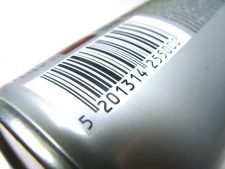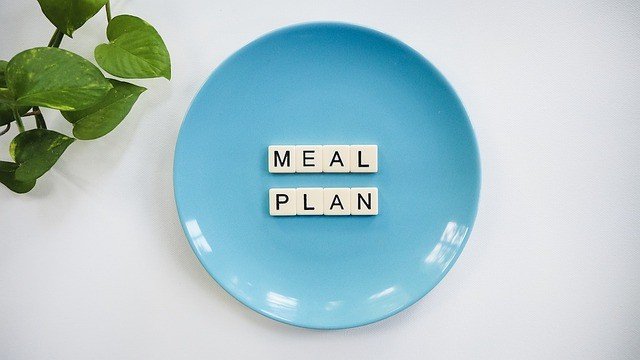Probiotics–2020’s Hottest Topic {Awesome Health Benefits for Quick Results}

Probiotics
What Are Probiotics?
Probiotics are live bacteria that help your digestive system. When most people hear the word bacteria they usually assign a negative connotation with it. However, bacteria found in probiotics are helpful to your body, especially your gut.
Think of probiotics as a director. It guides and helps your food go through your gut in the proper manner.
Probiotics can treat bowel issues such as irritable bowel syndrome, diarrhea, inflammatory bowel disease, and more.
If you are prone to getting yeast infections or skin conditions, probiotics can help with that as well. Vaginal and urinary health can improve because the bacteria will balance your ph levels. If you have eczema or tend to get rashes, then try a probiotic.
When you have the right amount of probiotics in your system, it makes it harder for harmful bacteria to get in your body and make you sick.
Food Containing Probiotics
Although probiotics are naturally found in your body, you can also find them in food. Most people probably will not get enough probiotics in their system through food. That’s where taking a probiotic comes in handy. Foods such as yogurt, sourdough bread, and sauerkraut are some familiar sources of probiotics.
Staying Healthy
Probiotics can help replace lost good bacteria after taking antibiotics. Anything we can do to reduce the “bad” bacteria from our bodies that contribute to disease is a good thing.
The ultimate goal is to balance the good and bad bacteria in our bodies which will help the body perform as it should.
Types
Two types of probiotics include lactobacillus and Bifidobacterium. The former type helps with such problems as diarrhea and those who are lactose intolerant.
Lactobacillus can be found in foods such as yogurt and other fermented foods. Bifidobacterium is in dairy products. It will help with irritable bowel symptoms
- Lactobacillus – This is the most important probiotic. You’ll find this one in food products like yogurt and some other fermented foods. This type of probiotic can help with diarrhea and may help people who cannot digest lactose.
- Bifidobacterium – This type of probiotic can be found in most dairy products. This type will most likely help with any symptoms of irritable bowel syndrome.
Some people do not tolerate dairy well so getting good bacteria through probiotics is a better way to go than relying on dairy. Plus, for overall good health, incorporating probiotics into your daily health regimen will help keep your body healthy.
Harmful Bacteria
- Streptococcus pyogenes – This type of bacteria causes a sore throat and skin infections that may worsen.
- Escherichia coli – This type of bacteria causes diarrhea.
- Staphylococcus – This type of bacteria lives on the skin. It is harmless unless it enters the body. It can enter during surgery and then inhabit heart valves or artificial joints. That’s when it can cause very dangerous and serious infections.
Beneficial Bacteria
- Lactobacillus acidophilus – This type of bacteria lives in many parts of your body. The most common place is your intestine, vagina, and oral cavity. This bacteria has also been known to boost immunity. Because of all the benefits it has, it is used in food supplements.
- Bacillus subtilis – This helps to normalize gut motility and metabolic functioning.
- Bifidobacterium animalis – This type is found in the intestine of both humans and animals. It aids in the digestion process. If you are constipated or have irritable bowel syndrome, you can take this in supplemental doses to ease and improve the symptoms.
- Streptococcus thermophilus – This type of bacteria can strengthen immunity and can strengthen the function ability of the gut. It can be obtained from dairy products like cheese.
- Lactobacillus reuteri – This type is found in maternal breast milk and will become a permanent part of the gut flora. It can also be found in foods like cheese and yogurt.
Being Off Balance
The bacteria in your body can get off balance. This can be caused by the intake of antibiotics. This is because antibiotics don’t just destroy bad bacteria, they can also destroy good bacteria. Taking probiotics can help to keep the bacteria in your body balanced.
Health Issues
If you are experiencing digestive problems along with some discomfort, you could have an imbalance of good and bad bacteria in your gut.
Many ongoing health problems are overlooked, and the health problems the person is having can be related to many different things. And sometimes those things can lead to worse things if not treated.
Some health problems that are caused by an imbalance of bacteria include:
- An unhealthy digestive flora – This will then lead to inflammation, which can result in ulceration. This will destroy the mucosal lining of the intestinal wall.
- Bacterial vaginosis – A woman’s vagina has a natural occurrence of bacteria, but there’s an even mixture of good and bad. When that bacteria is disrupted and the mixture between the good and bad bacteria is uneven, it causes bacterial vaginosis.
If untreated, bacterial vaginosis can lead to pelvic inflammatory disease, pregnancy complications, an increased risk of infection, and a greater chance of getting an STD.
Tips for Proper Balance
It’s important to have the perfect balance of both good and bad bacteria in your gut. Here’s how you can make sure that you keep the good kind of bacteria where it should be.
Healing Your Gut
If you are eating a lot of sugar, you are feeding the wrong kind of bacteria to your gut. You are more prone to getting diseases than getting and being healthy. Instead, you’ll want to promote the good kind of bacteria which will keep you healthy and prevent any diseases.
Probiotics are very important partners with the defense system of your intestine. Optimizing your gut’s health should be started at a very young age.
Many babies nowadays are not getting the natural healthy infusion of beneficial gut bacteria. The earlier this can be corrected, the better it will be.
Breastfeed your child if at all possible because of bottle-feeding places a heavy toll on the babies’ intestinal health.
For mothers who are breastfeeding, if you are not including fermented foods into your diet, you should consider taking probiotic supplements – especially if you are consuming a lot of processed foods.
Probiotic Supplements
Unfortunately, we tend to consume foods with a good amount of sugar in our diets. Grains are also a big part of many people’s diets.
If you are one of those people who consume lots of sugar, grains, and processed foods, you definitely should be taking a probiotic as it is a helpful start to new and healthy recovery.
If you do decide to add supplements, look for and use the high potency, multi-strain variety.
Having an imbalance of good and bad bacteria can lead to some pretty serious illnesses. If you’ve eaten lots of junk food in your life, especially every day, your gut could be in danger of having an imbalance.
Your gut could also be in danger because of the usage of antibiotics. Antibiotics can attack the good bacteria in your body, causing an imbalance.
Choosing the Right Supplement
Finding the right type of probiotic for your body is very important. But unfortunately, it’s not as easy as you want it to be. There is a large range of probiotics, all with different ingredients and different things they do for your body.
It’s important to read the probiotic label so you know exactly what types of probiotics are in the product. All labels should include:
- The species and strain of the microorganisms. Many labels only include the species, but the different strains provide different benefits.
- A number of organisms in a single dose and instructions on how often the probiotic should be taken. You should pick one with at least seven strains and five billion colony-forming units (CFU).
- Storage information. The label needs to tell you the best storage for the probiotics. Always keep your probiotics away from heat and moisture. Some probiotics need to be kept in the refrigerator. Be sure to read and follow the best care for them.
- “Live and active cultures”. When buying yogurt, look for the yogurt that has this on the label.
- Encapsulated pills ensure that the bacteria can survive through the acidity in your stomach and be able to reach your colon.
- Certification by an independent third party. The Food and Drug Administration (FDA) does not regulate most probiotics. This means that the number of bacteria stated on the container may not be accurate. Always be sure that everything has been tested.
- Find a probiotic with multiple strains of bacteria. This is because the gut contains 30-40 strains. The more strains, the happier and healthier you will be.
- If you’re traveling, take saccharomyces boulardii a couple of weeks before your trip. Taking this probiotic will help prevent traveler’s diarrhea. Many people get this by digesting food or water that has been infected with bacteria.
- If you’re lactose intolerant, you should take lactobacillus bulgaricus. This will help the gut to digest lactase.
Staying Healthy
The right probiotics are important for your gut, but you should also strive to keep it healthy. The bacteria in your colon thrive on non-digestible fibers. This is also known as prebiotics.
To keep your gut healthy consume foods such as honey, garlic, bananas, and artichokes. Most probiotics already have prebiotics in them but they’ll be listed on the label as inulin.
Doing some research on the perfect probiotic for you ensures that you get a good quality product. If you’re ever not sure about the best probiotic for you, it’s always a good idea to check with your doctor.
Here are two really good probiotics. One is in liquid form, and one in capsule form.
Since addressing your gut health can help with many health problems, taking a probiotic is a great way to start your new health journey. This is especially true if you’re feeling overwhelmed and don’t know where to begin.
Keep a diary and document your symptoms and how you’re feeling each day as you take your probiotic. This will give you a clearer picture of what’s going on with your health.
Check out our BulletProof Gut Program, which includes several self-assessments to evaluate your gut health, and action plan to begin healing your gut, food lists to help you determine the healthiest food options, menu templates, shopping guides, and supplement guides.
You get exclusive membership to our VIP Club, where you get exclusive content and freebies when you purchase this program.



